Award Winners
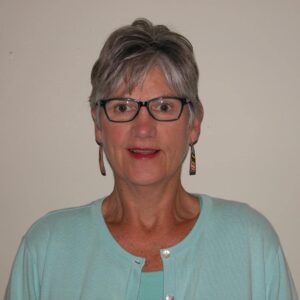
Dr. Donahue has had a productive and influential history of research and service to the audiology community specializing in the study of hearing, hearing loss, and balance systems. For over 25 years, as a dedicated public servant, she has been involved with the research programs of the National Institute on Deafness and Other Communication Disorders (NIDCD), initially as a health scientist administrator and then as the chief of the hearing and balance/vestibular sciences branch.
During the early years, she worked with a large variety of interlocutors: individual scientists, the leadership of the NIH and NIDCD, along with government, academic and hearing industry leaders. She was a leader in holding exploratory workshop and consensus conference between developers to establish neonatal hearing screening programs, interventions in young children with hearing loss, and focused on translating basic research findings into clinical tools for use in the diagnosis and treatment of hearing and balance disorders.
More recently, as the deputy director of the division of scientific programs, Dr. Donahue has provided the leadership to guide the hearing and balance research community concerning their research programs. She teaches how to obtain funding to support programs, to create direction and policies that help define the future of hearing research, and to foster the translation of hearing research into clinical applications. During this time, she has made a major effort to make hearing healthcare more accessible and affordable to all patients. This initiative resulted in a major contract award to the Institute of Medicine to conduct a consensus study on accessible and affordable hearing health care for adults, which was led by the NIDCD and sponsored by several federal agencies. The resulting prestigious report published this past summer recommended a series of priorities and actions for improving hearing health care. The Honors Committee wholeheartedly agrees that Amy Donahue is recognized as the recipient of the 2017 Career Award in Hearing for her significant contributions to furthering scientific research in the field of hearing loss.
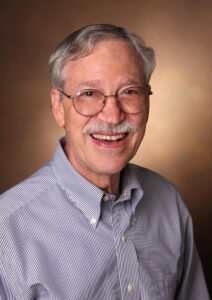
Dr. Grantham obtained his PhD in sensory psychology from Indiana University and completed post-doctoral training in the Auditory Research Laboratory at Northwestern University. During this time, he investigated the psychophysics of moving sound sources and published some of the authoritative studies on auditory motion after-effects and the time constants of binaural analysis alongside Dr. Fred Wightman. After two years as an assistant professor of psychology at Loyola University, Dr. Grantham became the coordinator of the Psychoacoustics Laboratory and eventually the director of research at the Bill Wilkerson Hearing and Speech Center at Vanderbilt University. For the past 27 years, Dr. Grantham has conducted research, taught courses, and mentored students, while maintaining an impressive history of research publications, scholarly presentations, and grant funding.
Dr. Grantham is an internationally known expert in human auditory perception, and a leading authority in the specific area of dynamic binaural processing. Notably, he has more than 125 published scientific papers, book chapters, and presentations on topics such as localization, binaural masking, motion perception, and spatial hearing in individuals with normal hearing and with cochlear implants. Throughout his distinguished career, he has received funding from the National Science Foundation and the National Institutes of Health in support of his innovative and scientifically relevant research that has provided our profession with a better understanding of the complexities of binaural processing in normal and impaired hearing.
He has been recognized as a fellow of the Acoustical Society of America, and has served as an editor or reviewer for some of our top professional journals, including The Journal of the Acoustical Society America, Ear and Hearing, and the Journal of Speech and Hearing Research.
Currently professor emeritus at the Bill Wilkerson Center for Otolaryngology and Communication Sciences at Vanderbilt University Medical Center, Dr. Grantham continues to provide mentoring and inspiration to future audiologists, hearing scientists, and otolaryngologists. Thus, with his research and scholarly achievements, and his commitment to teaching and mentoring students and junior faculty in audiology and hearing science, Dr. Wesley Grantham is a most deserving awardee of the American Academy of Audiology’s Career Award in Hearing or Balance.
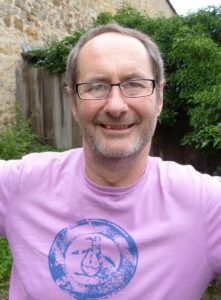
Professor David Moore, PhD, has indeed achieved his personal ambition to contribute to the knowledge on how hearing changes across the life span, and he has done so with scientific flair, insight, and creativity that very few researchers possess. Dr. Moore has had a truly distinguished career as an auditory neuroscientist.
Dr. Moore is one of the leading international scientists in auditory behavioural neuroscience in both animals and humans. His research interests focus on the auditory brain and include auditory spatial hearing, brain plasticity, auditory development and learning, and, more recently, large-scale studies using the UK Biobank of over half a million people. His 35-year globetrotting journey has brought him to Cincinnati Children’s Hospital Medical Center, where he is currently director of the Communication Sciences Research Center and professor of otolaryngology, and has taken him to some of the most esteemed academic institutions. Dr. Moore has been visiting scientist at the University of California, Irvine, the University of Washington, Seattle, New York City University, and Northwestern University, Chicago.
In the UK, Dr. Moore held leadership positions at the prestigious Oxford University and the world-leading Medical Research Council Institute of Hearing Research (IHR) in Nottingham, where he was director from 2002 to 2012. It was at IHR that Dr. Moore’s interests in translational research and his desire to develop interventions that lead to better hearing in children and adults came to the fore. Many will know Dr. Moore for his pioneering work on auditory development, specifically auditory processing disorder (APD) in children. Always prepared to challenge orthodox views, particularly when there are real gains to be made in pushing the boundaries of knowledge and understanding, Dr. Moore has transformed the long-standing thinking on the nature of APD. This is evidenced by the white paper discussion on evolving concepts of developmental APD that he led through the British Society of Audiology’s APD Special Interest Group.
Unlike many academics, Dr. Moore’s research ambitions are more than his prolific output (over 150 publications and research income exceeding tens of millions of pounds); he is also driven to ensure that his research has an impact in the real world. While in Nottingham, Dr. Moore cofounded the National Institute for Health Research Nottingham Hearing Biomedical Research Unit (NHBRU) in 2008. This facilitated the pull-through of excellent basic science carried out at IHR into NHBRU to provide the essential pipeline from basic to translational research and set the scene for research to provide patient benefit. A recent example is the codevelopment of the ECLIPS questionnaire for APD that will shortly be available in the United States. Prior to that, Dr. Moore’s entrepreneurial skills saw him found MindWeavers PLC, creators of auditory learning experiences. In 2010, he was awarded the George Davey Howells Prize of the Royal Society of Medicine for editing the three-volume Oxford Handbook of Auditory Science.
Throughout this long and distinguished career, some of Dr. Moore’s most gratifying times have come from seeing many of his students and postdocs make significant contributions across science, medicine, and audiology. That this mentorship should give him so much satisfaction and pleasure highlights the kind of person Dr. Moore is—not just a great scientist but a really great guy.
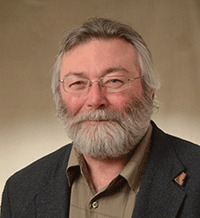
Dr. Jones brings unique knowledge and skills to audiology and hearing science. He is a professor in the Department of Special Education and Communication Disorders at the University of Nebraska–Lincoln. With his background in the sciences, a PhD in physiology, he brings a valuable component to the training of scientists in giving them the knowledge and skills needed to meet the challenges of interdisciplinary research. His extensive knowledge of the auditory and vestibular systems underlies his excellence in mentoring and teaching.
Dr. Jones has devoted his career of more than 30 years to laboratory research, teaching, and mentoring. His research interests are broad and related to the evolution of the sensory systems and, in particular, the role that gravity may have played in shaping gravity receptor systems across species. His research has focused on the normal development of the inner ear and the underlying mechanisms for development and recovery of balance function. With primary focus on the vestibular system, Dr. Jones has pioneered research in vestibular sensory evoked potentials and is considered a definitive expert in this area. His history of research funding is exemplary with continuous funding from the National Institutes of Health (NIH), the National Institute on Deafness and Other Communication Disorders (NIDCD), and the National Aeronautics and Space Administration (NASA). His work has resulted in a productive record of 70 peer-reviewed articles in scholarly journals, 105 published abstracts, and a recent seminal text on Genetics, Embryology and Development of Auditory and Vestibular Systems.
As noted by his nominees, Dr. Jones entered science to advance scientific knowledge. Through his quiet, thoughtful approach, he has moved knowledge forward in several areas and has mentored students who now have established their own successful scientific careers. Dr. Jones is a productive scientist whose work crosses many disciplines with creative thinking and up-to-date techniques applied to both basic questions and clinical problems. Of particular importance to audiology, he has taught many audiology students, mentored many budding audiology researchers, and bridged the areas of basic and clinically applicable research. He works “in the background,” providing informative research and mentoring to young auditory scientists and audiologists without asking for any personal recognition. It is rare to find a basic scientist who has had as much close affiliation, mentoring, and teaching experience within audiology training programs as Dr. Jones. Over many years, he has consistently taught courses and mentored master’s and doctoral students in audiology training programs.
To quote one of his nominators, “Dr. Jones is one of the most productive, thoughtful and rigorous scientists I know. He is clearly deserving of the national recognition that this award would bestow.” Dr. Jones richly deserves this recognition of his accomplishments and his devotion to audiology in sharing his knowledge and expertise.
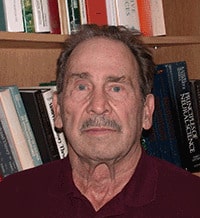
Though formally educated in sensory psychology and not audiology, Donald (Don) Henderson, PhD, has earned a great deal of respect and admiration from many audiologists due to significant contributions through his pioneering work in basic and applied research for audiology and hearing science. If one were to look through his vitae, there would be abundant evidence of his productive quest to reduce the impact of hearing loss.
Dr. Henderson is a professor of communicative disorders and sciences at State University of New York. Besides his appointments as a full professor, he has served as the director of The Callier Center, acting dean of the School of Human Development at the University of Texas at Dallas, chair of communicative disorders and sciences at State University of New York at Buffalo, and director of the Center for Hearing and Deafness at SUNY Buffalo.
In 2006, his contributions were formally recognized by two separate entitiesthe National Hearing Conservation Association with the Outstanding Hearing Conservationist Award and by the Hofstra University with the National Research Award for Distinguished Contributions to the Field of Research in Hearing Science. Dr. Henderson is an internationally recognized scholar and researcher with over 130 peer-reviewed articles, 43 book chapters and edited 11 books. Not only has he been awarded 32 awards and grants from federal, state, and private sources, but he has served on many prestigious national grant review panels including the National Institutes of Health, Institute of Medicine, Office of Naval Research, and National Institute of Occupational Safety and Health through his long career that spans over 40 years.
His bench-to-bedside translational research has involved novel pharmacological approaches for preventing noise-related hearing loss that has resulted in three drug patents for prevention or reversal of sensorineural hearing loss through biological mechanisms. His in-depth findings have provided critical scientific evidence that continues to be used within the industry as well as for standards and legislation to prevent hearing loss. Dr. Henderson has mentored many young hearing scientists, audiologists, and professionals in other disciplines, many of whom have gone on to successful careers in academia, industry and the military. His unique and gifted teaching style, in which he elegantly weaves basic research data into meaningful applications has made him a highly sought lecturer outside of his own institutions. As one colleague noted,All that Don has and is accomplishing is done with genuine kindness, humbleness and respect. Without a doubt, Dr. Henderson is well deserving of the 2013 Career Award in Hearing or Balance!
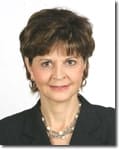
Lu Beck’s innumerable contributions to audiology place her among the best of the best in our profession. Through her efforts, directly and indirectly, she has influenced the path that the profession of audiology has taken and will take in the future. She fought for the acceptance of the Doctor of Audiology (AuD) degree and continues to fight as it is implemented. The level of private and public hearing health care delivery in the United States has been raised through her labors. She fought for and obtained the right for patients in the VA to seek direct access to audiology services. She is viewed as an expert because of her depth of knowledge, her strong research record, and most notably, because of her vision for hearing health care. Beck’s commitment to the field of hearing, the profession of audiology, and the Academy are without parallel.